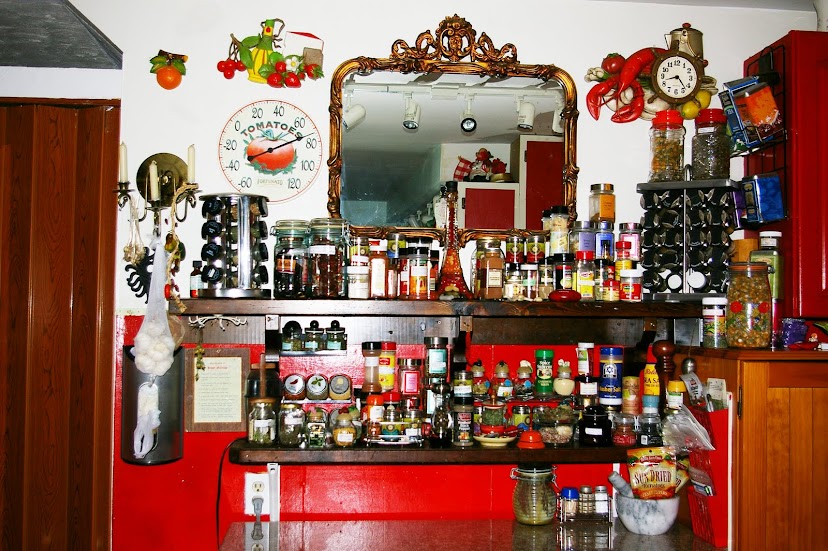Did you know honey contains bits and pieces of pollen and honey, and as an immune system booster, it is quite powerful.
Allergies arise from continuous over-exposure to the same allergens. If, for example, you live in an area where there is a great deal of red clover growing, and if in addition you often feed red clover hay to your own horses or cattle, then it likely you are exposed over and over to pollen from this same red clover. Now, red clover pollen is not especially allergenic but still, with time, a serious allergy to it can easily arise.
Another example: if you lived in a southern area where bottlebrush trees were frequently used in the landscapes or perhaps you had a bottlebrush tree growing in your own yard, your odds of over-exposure to this tree's tiny, triangular, and potently very allergenic pollen is greatly enhanced.
In the two examples used above, both species of plants are what we call amphipilous, meaning they are pollinated by both insects and by the wind. Honeybees will collect pollen from each of these species and it will be present in small amounts in honey that was gathered by bees that were working areas where these species are growing. When people living in these same areas eat honey that was produced in that environment, the honey will often act as an immune booster. The good effects of this local honey are best when the honey is taken a little bit (a couple of teaspoons-full) a day for several months prior to the pollen season.
When asked how local should the honey be for allergy preventione I advise is to get honey that was raised closest to where you live, the closer the better since it will have more of exactly what you'll need.
It may seem uncanny that straight exposure to pollen often triggers allergies but that exposure to pollen in the honey usually has the opposite effect. But this is typically what we see. In honey the allergens are delivered in small, manageable doses and the effect over time is very much like that from undergoing a whole series of allergy immunology injections. The major difference though is that the honey is a lot easier to take and it is certainly a lot less expensive. I am always confounded that this powerful health benefit of local honey is not more widely understood, as it is simple, easy, and many a time surprisingly effective.
Pharmaceutical companies have massive budgets and can fund studies, but with honey this scientific research doesn't seem to get funded... to much of a degree most evidence we have is what we see, unreliable evidence. That however can be, and often is important; sometimes, often actually, such evidence proves very useful. Just for the record, I'm not suggesting that local honey will replace allergists. But what I am saying is that since visits to allergists are expensive and the series of immunology shots, although generally very effective, are costly, it just plain foolish not to try the local honey a try first. Many times and I have seen firsthand, the local honey will take care of the problem, quickly, safely, and inexpensively. This is my third allergy free year! I suffered terribly for years. Every morning before my cup of coffee I take my teaspoon of local raw honey. Can't hurt to try :)
If you have any questions, please feel free to ask! Thanks for looking! God Bless, Simone :) Copyright@SimoneBonda
If you have any questions, please feel free to ask! Thanks for looking! God Bless, Simone :) Copyright@SimoneBonda
Disclaimer - The herbal information on this web site is intended for educational purposes only. It is not the intention of the editor to advise on health care. Please see a medical professional about any health concerns you have. Disclaimer - These statements have not been evaluated by the FDA. The information on this web site is not intended to prevent, diagnose, treat, or cure any disease. Tweet

No comments:
Post a Comment